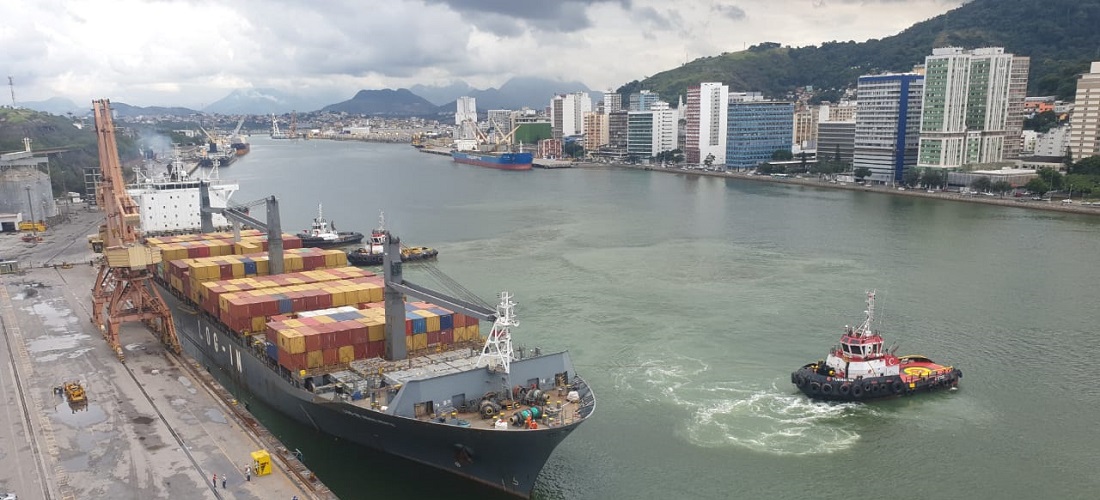
Port of Vila Velha announces new service to import electric cars from China
Sep, 04, 2023 Posted by Gabriel MalheirosWeek 202336
In an unprecedented initiative for Brazil, the Port Terminal of Vila Velha (TVV), managed by the Multipurpose Port Terminal of Log-In Logística Intermodal, along with the Chinese maritime transport company Cosco (China Ocean Shipping Group), has announced a new commercial route aimed at facilitating the importation of electric cars from China to Brazil.
The official announcement took place during an event held at the Vila Velha Terminal (TVV) this week and was attended by Vice Governor Ricardo Ferraço, Vila Velha Mayor Arnaldinho Borgo, as well as other authorities and representatives from both TVV and Cosco.
TVV is a multifunctional port facility that oversees ship loading and unloading, as well as the handling and storage of containers and various types of cargo.
The new electric car transport service, in partnership with the Chinese giant Cosco, using Flat Rack containers to accommodate large cargo, is an unprecedented innovation in Brazil.
Currently, only Chile and Ecuador offer this type of operation in South America, making this route a crucial alternative to overcome the shortage of specialized ships for vehicle transport, especially those destined for China.
Furthermore, the initiative aims to boost the economy and trade between Brazil and China, allowing the exclusive entry of Chinese electric cars through the port of Vitória.
Pilot Project Turned Reality
The pilot project for this new operation began in December 2022, with the arrival of 600 cars in Espírito Santo.
With the success of the tests and the subsequent growth of the operation, which brought to Brazilian shores 8,000 imported vehicles by June this year, the service has now become official, with expectations to double the volume of transported electric cars in the next six months.
New Route and Local Economy Boost
Marhmed Hashemj, Commercial Manager of Log-In, emphasized that to ensure the success of the new commercial route, the fleet has been updated with more modern and efficient ships in terms of consumption, speed, storage space, and security.
In addition to transporting cars in traditional containers or Flat Racks, these ships can integrate with other port operations, such as granite export, which has been ongoing for over 10 years. This enables the use of reverse logistics and encourages trade between Brazil and China.
Hashemj highlighted that this partnership represents an opportunity to boost the local economy.
“Espírito Santo is a major exporter of pulp and granite, but these ships used to depart for China loaded and return empty. Now, this bottleneck has been leveraged to develop a unique and exclusive China-Brazil import route,” he said.
The new route and partnership with Cosco became possible due to recent investments in the Terminal, totaling around R$ 150 million, allowing for the modernization of equipment and the implementation of new technologies. This has provided the operation with greater security, agility, and efficiency
-
Ports and Terminals
Jan, 10, 2022
0
Codesa enhances performance in 2021
-
Shipping
Oct, 21, 2020
0
CMA CGM to increase Manaus tariff due to low water level in Amazon
-
Ports and Terminals
Jul, 21, 2021
0
SPA privatization could be ready for public consultation by September
-
Ports and Terminals
Dec, 18, 2019
0
Draft changes lead to cost reduction in Paranaguá

